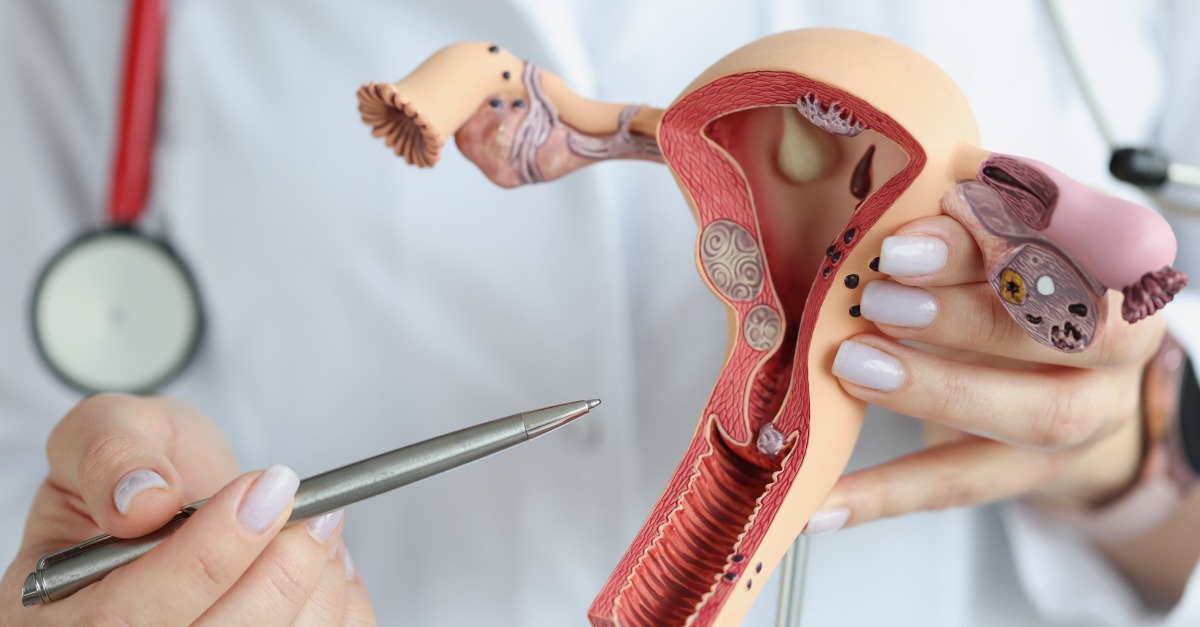- About
- News
- Careers
- Contact
- Serving the Lowcountry and Coastal Empire of Georgia and South Carolina.
-
MOBILE
APP






Serving the Lowcountry and Coastal Empire of Georgia and South Carolina.
Thursday, January 4, 2024

The cervix is a tunnel-like organ that connects the uterus and vagina. It plays an important role in fertility and childbirth, but aside from being a potential site for cancer, much tends to go unknown about this organ. Here, we’re sharing all the facts you should know about your cervix and its health.
The cervix is situated at the back of the vaginal canal, but its position can change throughout your menstrual cycle. It may be easier to feel during your period, for instance, since it sits lower during that time. When you’re ovulating, it retreats to become positioned further back. Sexual stimulation can also impact where your cervix is located. All of these changes are normal, but may affect how penetration feels.
For most people, the cervix is about an inch long and is located three to six inches inside the vaginal canal. If you’ve given birth, your cervix may be larger, as during childbirth, the cervix becomes shorter so the baby can make its way out of the uterus. If you’ve gone through menopause, your cervix may reduce in size.
Human papillomavirus (HPV) is a sexually transmitted viral infection which the body’s immune system typically defeats on its own. In some cases, however, certain strains of HPV can lead to genital warts, and others can cause cervical cancer. This is why we recommend both men and women receive the HPV vaccine.
The HPV vaccine is among the most powerful tools we have to prevent cervical cancer. Nearly all cervical cancers are caused by HPV, and experts assert that more than 90% of cases could be prevented with vaccination. For those who do get vaccinated, the HPV vaccine is highly effective at preventing the virus, with a success rate of 99%. Another way you can prevent cervical cancer: don’t smoke. As with other types of cancer, avoiding smoking can lower your risk.
Cervical cancer can take 20 years or more to develop after an HPV infection. In its early stages, cervical cancer doesn’t produce symptoms, which is why receiving a routine Pap smear is important. Once cervical cancer progresses, it can cause painful urination, changes in discharge, abnormal bleeding, and pelvic or back pain.
The good news is that there’s screening available to test for cervical pre-cancer long before any outward signs develop. Pap smears are a quick in-office procedure used to collect a small sample of cells from the cervix, which can then be tested for changes that could indicate cervical cancer or pre-cancer. When caught early, the treatment for cervical cancer is good.
While HPV and cervical cancer tend to get the most attention when it comes to cervical health, there are other cervical conditions to be aware of. Cervicitis, for instance, is inflammation of the cervix caused by infections or irritation. While STIs can cause the issue, it can also develop as a reaction to condoms.
“The cervix can also be the site for polyps, fibroids, and cysts,” says SouthCoast Health physician, Dr. Danielle N. Mankin. “Though these are usually harmless, they may produce symptoms like painful intercourse, vaginal bleeding, or difficulty urinating, so talk to your health provider for a closer examination of the issue.”
Routine Pap tests are an important part of preventive care. If you’re due for your Pap screening or you’re unsure when to schedule one, allow us to help. Appointment booking is conveniently available online or by calling our office at 912-691-3600.
Whether you are looking for a primary care doctor or a pediatrician, or another medical specialist, SouthCoast Health has you covered with its wide range of world-class healthcare services, available throughout the Coastal Empire and Lowcountry. SouthCoast Health has 120 physicians and medical professionals in 18 locations in Savannah, Richmond Hill, Pooler, Rincon, Baxley, Hilton Head, Hinesville, and Statesboro. SouthCoast Health offers comprehensive medical services including: Family Medicine, Internal Medicine, Pediatrics, Allergy and Asthma, Cardiology, Endocrinology, Eye Care, Imaging, Infectious Diseases, Nephrology, Neurology, Physical Therapy, Podiatry, Sleep Medicine, Surgery, Clinical Trial Research Studies, Diabetic Self-Management Training Sessions, Dietetic Counseling, Laboratory Services, Massage Therapy, Optical Shop, Pharmacy, and Urgent Care.